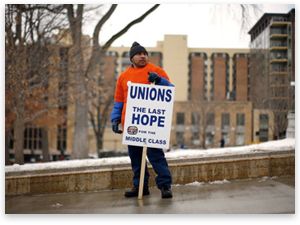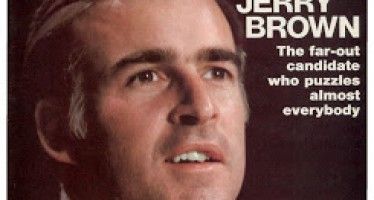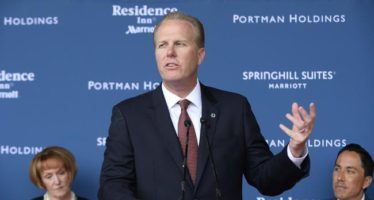A cruel month for public employee unions
By Joseph Perkins
California public employee unions were already having a bad June, what with passage of public pension-reform ballot measures by voters in both San Diego and San Jose over the opposition of union bosses.
But their June got exponentially worse yesterday when the U.S. Supreme Court declared that the political use of nonmember dues without consent — a standard practice by the Service Employees International Union here in the Golden State — violates the First Amendment rights of politically dissenting nonmembers.
The case, Knox v. SEIU, stems from a 2005 campaign by the SEIU against two ballot measures sponsored by former Gov. Arnold Schwarzenegger. Not only did the public employee union use a portion of regular dues for the campaign, it assessed an additional fee for its political activity.
The SEIU was sued by politically dissenting workers in its ranks. Its defense, upheld by a three-judge panel of the liberal U.S. 9th Circuit Court of Appeals in San Francisco, was that it offered the dissenters refunds (after the ballot measures were decided, of course).
But by a 7-2 majority, the High Court ruled that after-the-fact refunds do not “undo the violation of First Amendment rights.”
Writing for the majority, Justice Samuel Alito declared that the “aggressive use of power by the SEIU to collect fees from nonmembers is indefensible.” If public employee unions want to use nonmember dues for purposes other than collective bargaining, wrote Alito, they must first obtain the “affirmative consent” of nonmembers.
The state’s public unions are predictably spinning yesterday’s Supreme Court decision as no big deal. “The implications here are very limited,” Steve Smith, a spokesman for the California Labor Federation, told the Los Angeles Times.
Smith’s remark is no less absurd than the recent post-election denials by union bosses in San Jose and San Diego that voter approval of pension-reform ballot measures in the state’s second- and third-largest cities were a rebuke to public employee unions.
November election
Indeed, the prima facie evidence that the High Court’s ruling has more far reaching implications than CLF and other unions let on is the massive campaign the public employees unions are mounting to defeat the “Stop Special Interest Money Now Act,” which will appear on the state ballot in November.
If approved by voters, the measure will restrict unions from using compulsory dues paid by rank-and-file workers for political purposes without prior consent — the requirement established by yesterday’s Supreme Court ruling.
Yet, the SEIU issued a press release this past spring in which it declared that passage of the ballot measure will deal a devastating blow to the state’s public employee unions.
“Without a progressive voice,” the SEIU warned, “our jobs and the services we provide Californiaare at risk. Our pay, our benefits, our retirement security are all vulnerable, while Wall Street and the wealthy continue to spend record amounts of money to support their political agenda.”
Well, neither the U.S. Supreme Court, nor the sponsors of the “Stop Special Interest Money Now Act” are seeking to silence the “progressive” voice of the SEIU or any other ofCalifornia’s public employee unions.
They simply are standing up for the principle enunciated by Thomas Jefferson, with which most Californians almost certainly agree: “To compel a man to furnish contributions of money for the propagation of opinions which he disbelieves is sinful and tyrannical.”
Related Articles
In San Diego, is libertarian dream alive, stalled — or dead?
Nov. 8, 2012 By Chris Reed San Diegans had an extremely unusual choice for mayor Tuesday, picking between a gay
Feeble CalPERS reform shows Brown who runs Sacramento
Taken at face value, the pension reforms touted by Gov. Jerry Brown in 2011 and 2012 were genuinely far-reaching for
Poll: Republican gubernatorial candidates would perform well behind Democrat Newsom
Good news for California Republicans: In a field of nine candidates for the 2018 gubernatorial race, they have two of





